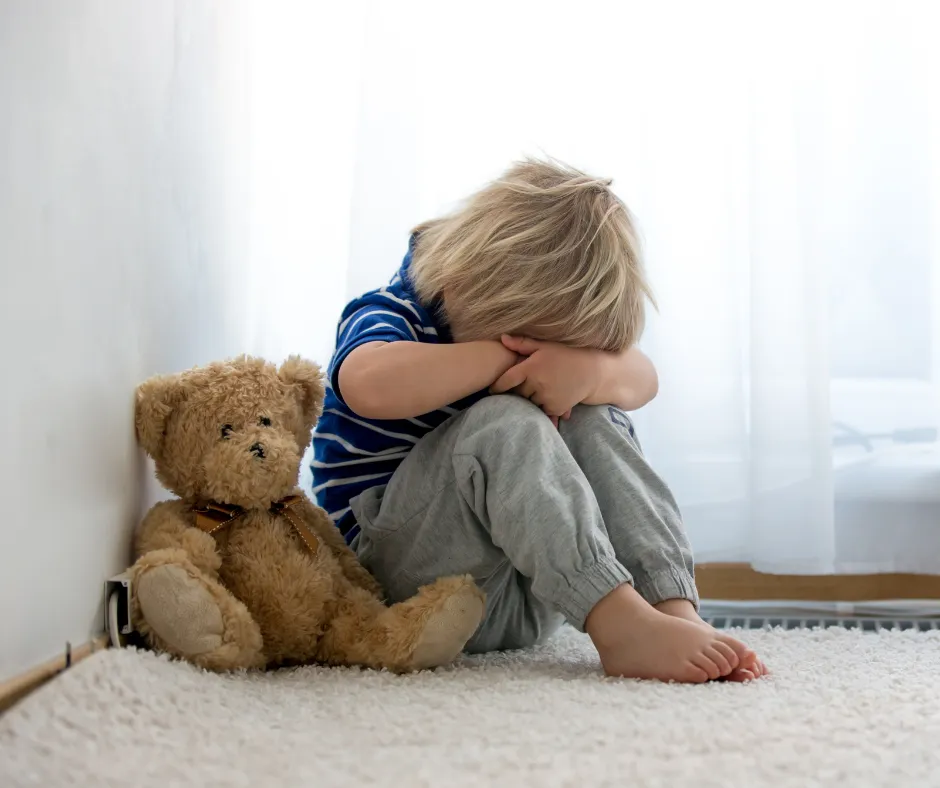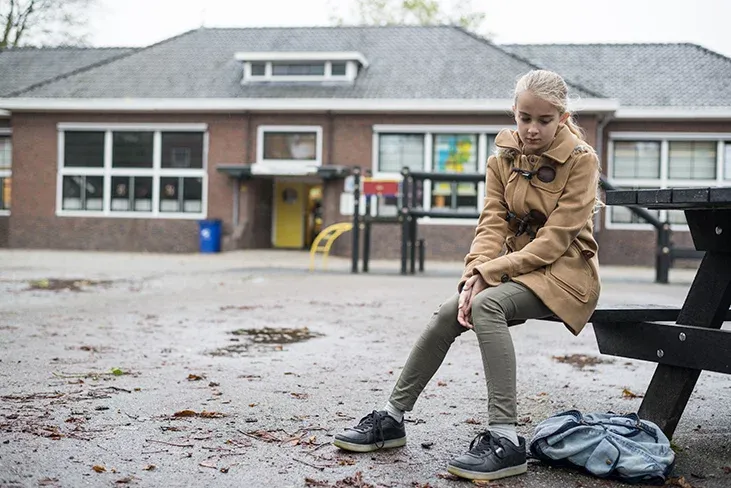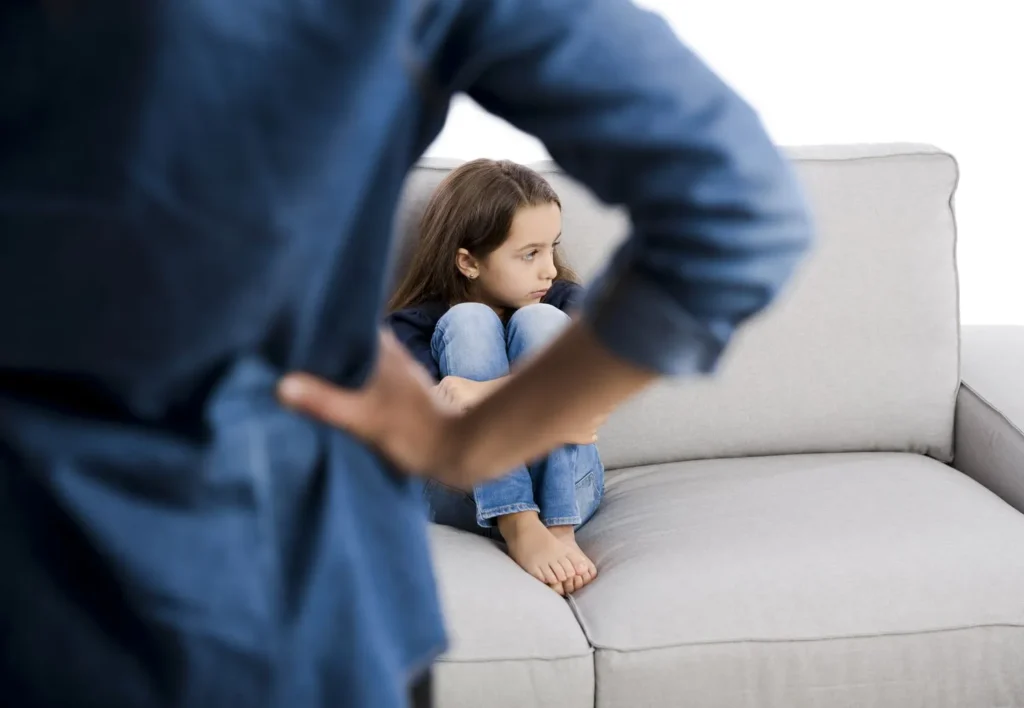Do you want to know the potential signs of an abusive babysitter? Keep reading to know the potential signs of an abusive babysitter.

Choosing a babysitter is a decision that involves trust and careful consideration.
Unfortunately, there are instances where a babysitter may engage in abusive behavior, putting the safety and well-being of your child at risk.
This guide aims to highlight the signs of an abusive babysitter, empowering parents to recognize potential red flags and take necessary action.
Signs of an Abusive Babysitter

Here are potential signs of an abusive babysitter:
1. Unexplained Injuries or Bruises on Your Child
The most alarming sign of an abusive babysitter is unexplained injuries or bruises on your child.
If your child consistently returns with injuries and cannot provide a plausible explanation, it raises serious concerns about the babysitter’s conduct.
In addition, parents should thoroughly investigate the circumstances surrounding any physical harm and take immediate action to address the situation.
2. Your Child’s Behaviors Changes After Spending Time With the Babysitter
Pay attention to sudden changes in your child’s behavior after spending time with the babysitter. Signs of distress, anxiety, withdrawal, or aggression can indicate potential abuse.
Parents should maintain open communication with their children, create a safe space for them to share their feelings, and seek professional help if needed.
3. Your Child Expresses Reluctance or Fear to Be Left Alone with the Babysitter
If your child expresses reluctance or fear about being left alone with the babysitter, it’s crucial to investigate the reasons behind their discomfort.
Children often have instincts about their safety, and their feelings should be taken seriously.
Parents should engage in open conversations with their child to understand any concerns and consider alternative caregiving options if necessary.
4. Your Babysitter Refuses to Communicate or Update on Your Child’s Activities
A responsible babysitter should maintain open communication with parents.
If the babysitter avoids providing updates on your child’s activities, meals, or any incidents during their care, it may indicate a lack of transparency or potential misconduct.
Parents should insist on regular communication and be wary of caregivers who withhold information.
5. You Notice Inconsistencies in Your Babysitter’s Stories
Be wary of inconsistencies in the babysitter’s stories about your child’s activities or any incidents that may have occurred.
If details change or do not align, it raises concerns about the accuracy of the information provided.
Parents should carefully document and cross-reference information to ensure the babysitter’s accountability.
6. You Notice Fearful or Avoidant Behavior in Your Child When the Babysitter is Mentioned
Observe your child’s behavior when the babysitter is mentioned. If your child becomes fearful, avoids discussions about the babysitter, or exhibits signs of distress, it could be an indication of negative experiences.
To address this, parents should create a supportive environment for their children to express concerns and seek professional guidance if needed.
7. Your Babysitter Uses Overly Harsh Discipline Tactics
Pay attention to the disciplinary methods used by the babysitter.
If there are signs of overly harsh or inappropriate discipline, such as yelling, physical punishment, or isolating the child, it can be considered abusive behavior.
Parents should establish clear expectations for discipline and intervene if these boundaries are crossed.
8. Your Child Exhibits Unexplained Fear of Certain Objects or Places
If your child develops an unexplained fear of specific objects, places, or activities associated with the babysitter, it may indicate that these triggers are linked to potential abusive incidents.
Parents should explore the root causes of such fears and address them promptly.
9. You Notice Changes in Your Child’s Sleep Patterns or Nightmares
Abusive experiences may manifest in changes to your child’s sleep patterns.
If your child begins experiencing nightmares, insomnia, or other sleep disturbances after being cared for by the babysitter, it warrants further investigation.
To address this, parents should closely monitor their child’s sleep and seek professional advice if necessary.
10. You Notice Physical Signs of Neglect or Abuse From Your Child
Watch for physical signs of neglect, such as poor hygiene, unchanged diapers, or signs of malnutrition. These indicators suggest that the babysitter may not be providing adequate care.
Parents should conduct regular checks on their child’s well-being and address any signs of neglect immediately.
In conclusion, protecting your child’s safety is paramount, and recognizing signs of an abusive babysitter is crucial for their well-being.
By staying vigilant, communicating with your child, and taking swift action if red flags emerge, parents can ensure a safe and nurturing environment for their children.
Prompt intervention and seeking professional help are essential in addressing any concerns related to the babysitter’s behavior.
Related Searches:
